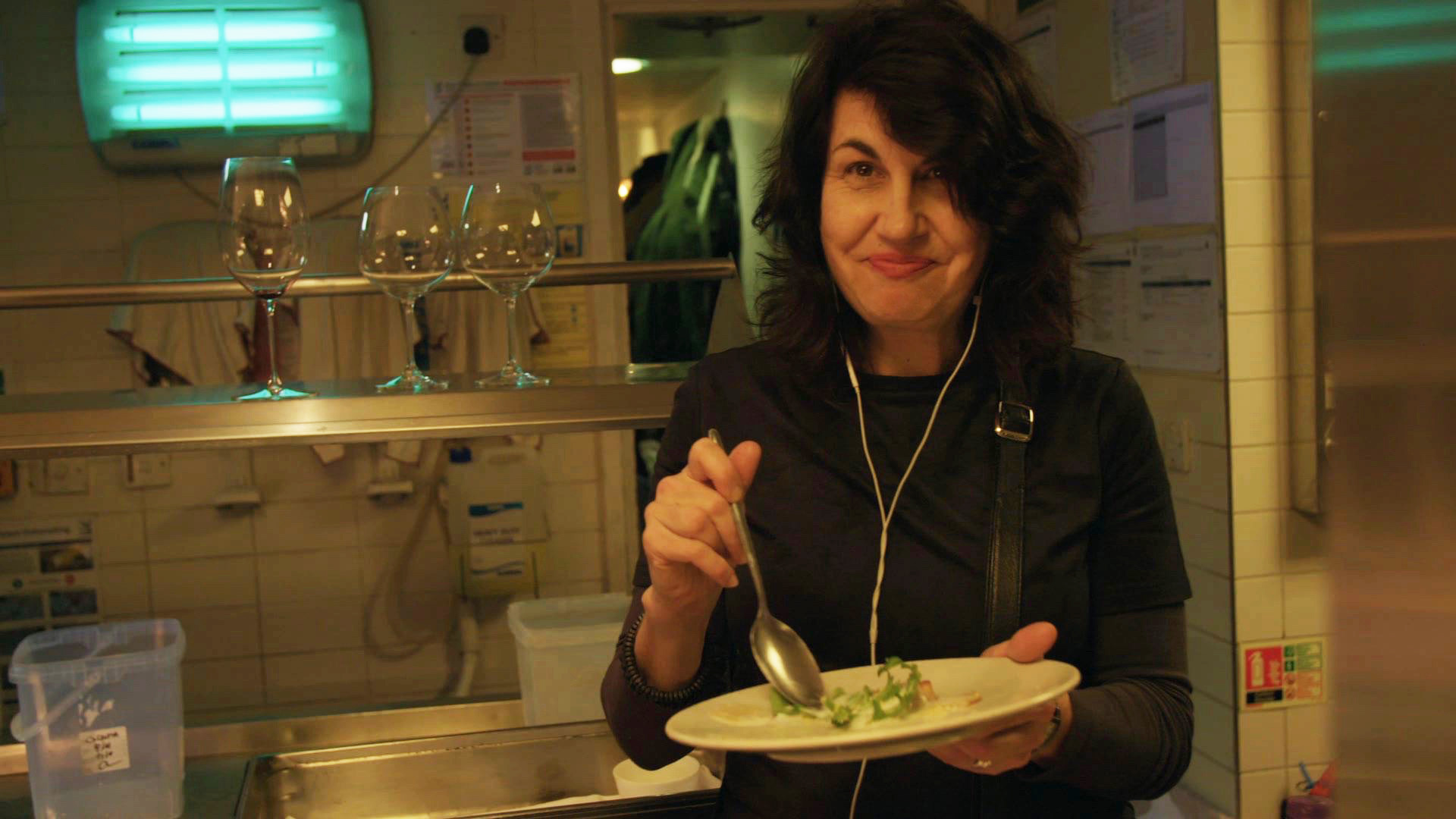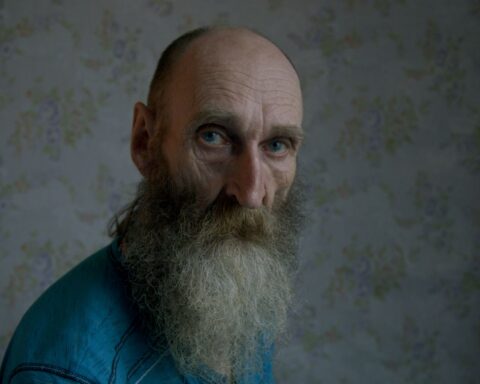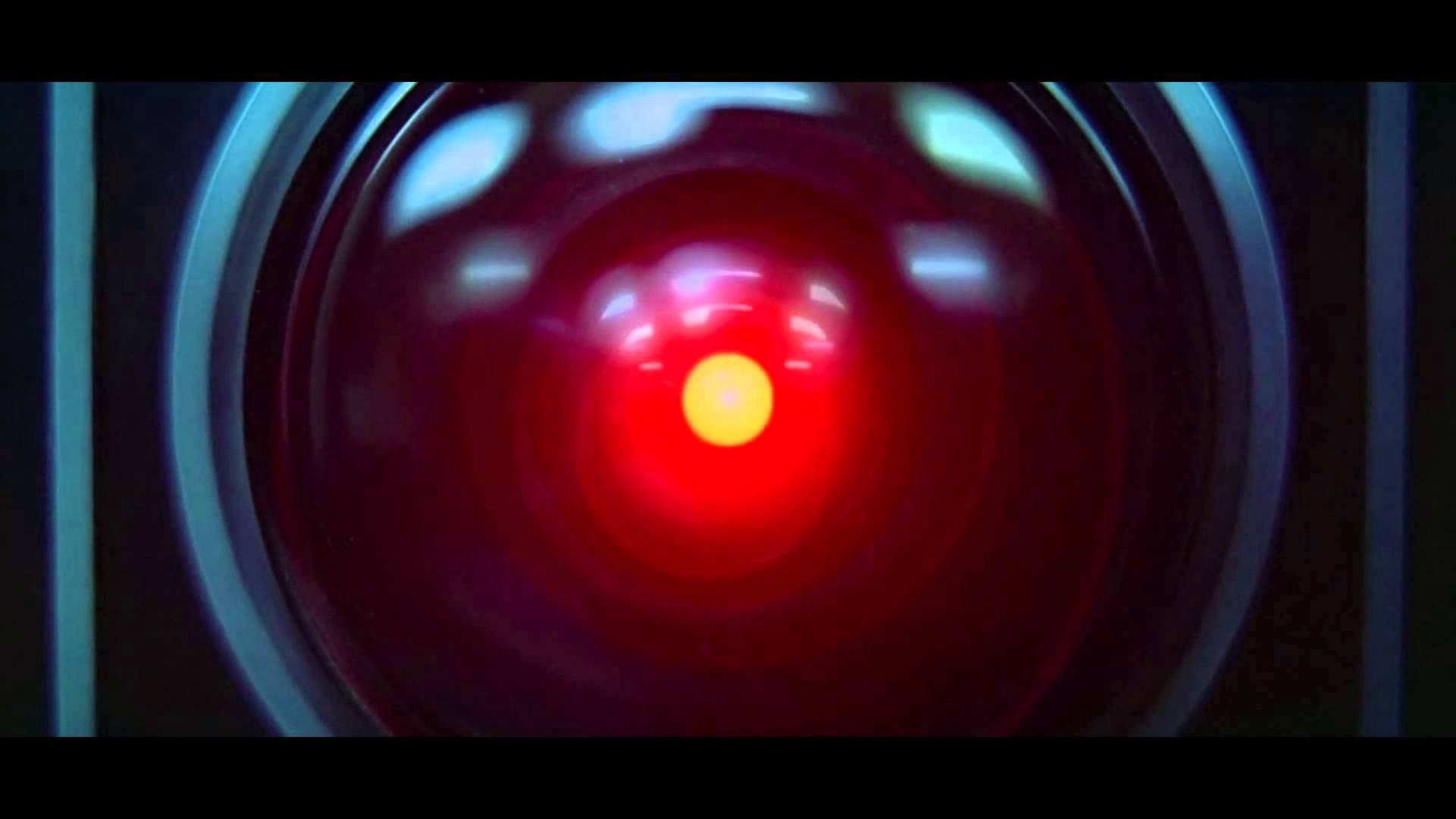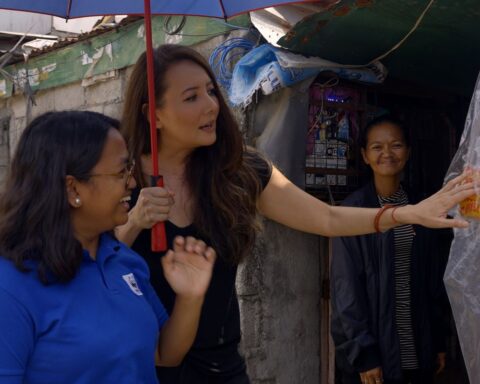Hot Docs kicked off its 25th anniversary with some home-cooked goodness last month. The festival opened with The Heat: A Kitchen (R)evolution by Toronto’s Maya Gallus. (Read the POV review of The Heat here.) The film offers the warm comforting appeal of foodie flicks—one of the most appetizing branches of documentary—while bringing serious business to the table. Its story of female chefs succeeding in a traditionally male-dominated field put the conversation over representation at the forefront of this year’s festival.
Gallus, last year’s Focus On honouree, and a staple of the festival with films such as Derby Crazy Love and The Mystery of Mazo de la Roche screening at recent editions of Hot Docs, brings the expert hand that audiences have come to recognize. The Heat is a warm and well-balanced meal. It’s a sharp dissection of gender roles, but a fine dish to savour, as are foodie films in general.
Home Cooking
The Heat asks why women so rarely enjoy prominent roles as chefs when they are traditionally masters of kitchens in the domestic sphere. Audiences can relate to the image of mom making dinner while dad put his feet up, grabbed a beer, and watched TV. Gallus, speaking with POV at Hot Docs, says her youth reflected this experience, but with a twist. “My mother did most of the cooking and then after my parents split up, my father became a brilliant cook and really loved cooking,” says Gallus. “Victoria Blamey says in the film how you don’t remember your dad cooking at the beginning. It’s always mom. And that’s generally true. I do remember my dad cooking later, but that’s only because he only took on that role once he had to.”
The film explores how these gender roles, in both private and public spaces, are ingrained from childhood. These traditional roles can be limiting for men and women alike, since one might not discover a talent or passion until much later in life. “It’s kind of a shame, really,” continues Gallus, “so many people, especially earlier generations, get stuck in these gender roles. Even now, typically, I see that when men do cook, they are either interested in gourmet cooking or they man the barbecue. Men and meat!”
Attempts to break the mould invite their own gender roles, but the chefs of The Heat aren’t daunted by meat on the grill. They can handle it. (It’s called The Heat, after all.)
Dish Dynamics
The question of women’s representation in restaurants isn’t new terrain to Gallus. The Heat offers a second course to her 2010 film Dish: Women, Waitressing & the Art of Service. The two films explore the gendered dynamics of food service, as Dish considers the issues women face while serving at the front of the house. Together, they’re two facets of a necessary conversation.
“What I was exploring in Dish was the relationship between women and service. As soon as it becomes a financial transaction, it inherently becomes sexualized on some level or there are emotional expectations of the female server to be either potentially sexually available, to be a gal pal, sister, or mother—a nurturing role,” explains Gallus. “I understood because I had been a waitress for many years and it really is a rite of passage for many women.” This dynamic is part of the same conversation The Heat addresses—male entitlement—as the relationship between men and meat perverts the wholesome space of the dinner table.
Unfortunately, a culture that objectifies women fails to notice those who succeed against the grain. “When I was researching Dish, a lot of articles started to come up about women in the culinary industry and the lack of representation,” adds Gallus. “Some of the articles would have headline, ‘Where are all the women chefs?’ Actually, there have been women chefs, but we just don’t care about them.”
This disparity sharpens as women navigate the different classes of restaurants less comfortably than men do. Haute cuisine and Hooters bring their own sets of barriers. “I was also interested in how women weren’t allowed into the hallowed halls of high end restaurants to serve because women were considered a distraction,” observes Gallus on Dish. “At the lower end of the service industry, women are considered appealing for the very reasons why they couldn’t be let into the higher end restaurants.”
Gallus says this dynamic continues with The Heat. “The higher you go up in the Michelin starred restaurants, the fewer women you’re going to find, not only in the kitchen, but at the helm of these kitchens.”
The Chefs
Women take back the kitchen in The Heat as Gallus makes visible the women who whip up delectable delights around the world. The film appropriately calls on women from a variety of backgrounds who add different flavours to the culinary scene. This intersectional survey of chefs considers the spectrum of experiences that are ignored from the mainstream. “It was really important for me to have intersectionality and diversity,” replies Gallus when asked how she chose her chefs. “I was interested in representing women who were at the grass roots level and then women who are at a very high level.”
Among the chefs is Toronto’s Suzanne Barr, a Jamaican-Canadian, who shares how her kitchen at Saturday Dinette, which is now closed with her newly opened Kid Chocolate just down the street, let her reclaim traditions shared through food. Barr’s scenes highlight the food she creates, but also the space she carves for Black representation in the food scene. The Heat observes the décor of Saturday Dinette that Barr filled with pictures of sit-ins from the Civil Rights movement. To the undiscerning eye, even a regular of Saturday Dinette could miss the political context of the wonderful diner. “People often don’t really look at everything around them, especially if you’re going in and you’re hung-over and just waiting for your eggs,” laughs Gallus. The film highlights how much one a casual eye may take representation for granted.
Top chefs like New York’s Anita Lo and Amanda Cohen discuss their experiences creating distinct dishes with scrumptious food that reflects their experiences. Charlotte Langley offers something new as Gallus follows the chef into her home as she creates pop-up cuisines using her own kitchen. France’s Anne-Sophie Pic, on the other hand, is her country’s only female chef to achieve the distinction of helming a three-starred Michelin restaurant. Despite her stature, audiences might not see Pic as often in foodie docs as they might chefs like René Redzepi or Gordon Ramsay.
“She’s another very high level, but she’s the only woman,” says Gallus, who shows off her interview skills by having the usually reserved Pic speak candidly about the challenges and rewards of breaking through a male-dominated field. “I guess she doesn’t really want to stick her neck out too much, but when we met, she said she felt that now is the time to support women and that she really loved that I was doing this film.”
The Reckoning
The Heat is very topical as it considers the rights of women in the workplace, but Gallus interviewed the chefs before charges of sexual harassment and assault brought down movie mogul Harvey Weinstein. The chefs’ stories nevertheless anticipate the wave of conversations with the #MeToo and #TimesUp movements and illustrate how long “the reckoning” was coming. “I’ve been exploring these issues in my films for years in terms of representation of women,” says Gallus. “I was aware this was brewing in the public mind but no one could have anticipated how pervasive it is.”
While there isn’t a Weinstein figure in The Heat — this doc is all about the women — Gallus highlights how the dynamics in the kitchen and the front of the house are part of the patriarchal pressure cooker. “As we know in any male dominated environment, there’s going to be sexism and harassment,” observes Gallus. “And then add to that, the hours, pressure, the lack of sleep, the substance abuse, the macho culture that has been glorified in that environment—basically anyone who is considered weaker due to gender, race, homophobia, etc. will get picked on to some degree and they have to prove themselves.”
Gallus echoes Pic’s sentiment that the time is right to fight for change. “We’re still at the beginning of the conversation and every day more stories in different industries are coming out and more women and other people who have been harassed or bullied are feeling safe enough to speak about it,” she says. Gallus adds that the engaged Q&As at Hot Docs are proof that audiences are hungry for change.
“Women Chefs” and “Women Directors”
Given the timing and topicality of The Heat, one can’t ignore how it could easily be a film about female directors. Swap Suzanne Barr, Anita Lo, Charlotte Langley, and Anne-Sophie Pic with Ava DuVernay, Mina Shum, Sofia Coppola, and Agnès Varda and the conversation doesn’t change. However, despite The Heat’s strong feminist perspectives, many of the interviewees express frustration with carrying the label of a “woman chef.” It’s the same in filmmaking: no programmer introduces “male director” Fred Wiseman at a festival.
The Heat, and the greater cultural movement of which it is a part, invites one to consider the point at which labels help or hinder. “This question has been circling for decades in different circles, whether it’s about writers and filmmakers,” agrees Gallus. “That whole question of not wanting to be segregated, not wanting to be shelved in the women’s section, is important, but at the same time we’re not there yet. We do need to think about representation and equity and gender parity.”
The director sees gradual changes at the institutional level to address these imbalances. Hot Docs is proof having achieved gender parity in its line-up this year, while Canada’s National Film Board is surpassing targets for parity in production. “But that only happens when you have the labels,” observes Gallus, “so the labels have to be talked about.”
Gallus returns to her interviews with Anne-Sophie Pic, who addresses the question of the label at the beginning of The Heat. “She says, ‘I’m a chef. I don’t like to think of myself as a ‘woman chef,’ but at the same time we have to talk about these things in order to correct it,’” says Gallus. It’s worthy food for thought—and far healthier than buttery popcorn.
The Heat opens at Hot Docs Ted Rogers Cinema on Friday, May 11.
It screens on TVO later this Fall.
Read the POV review of The Heat here.










